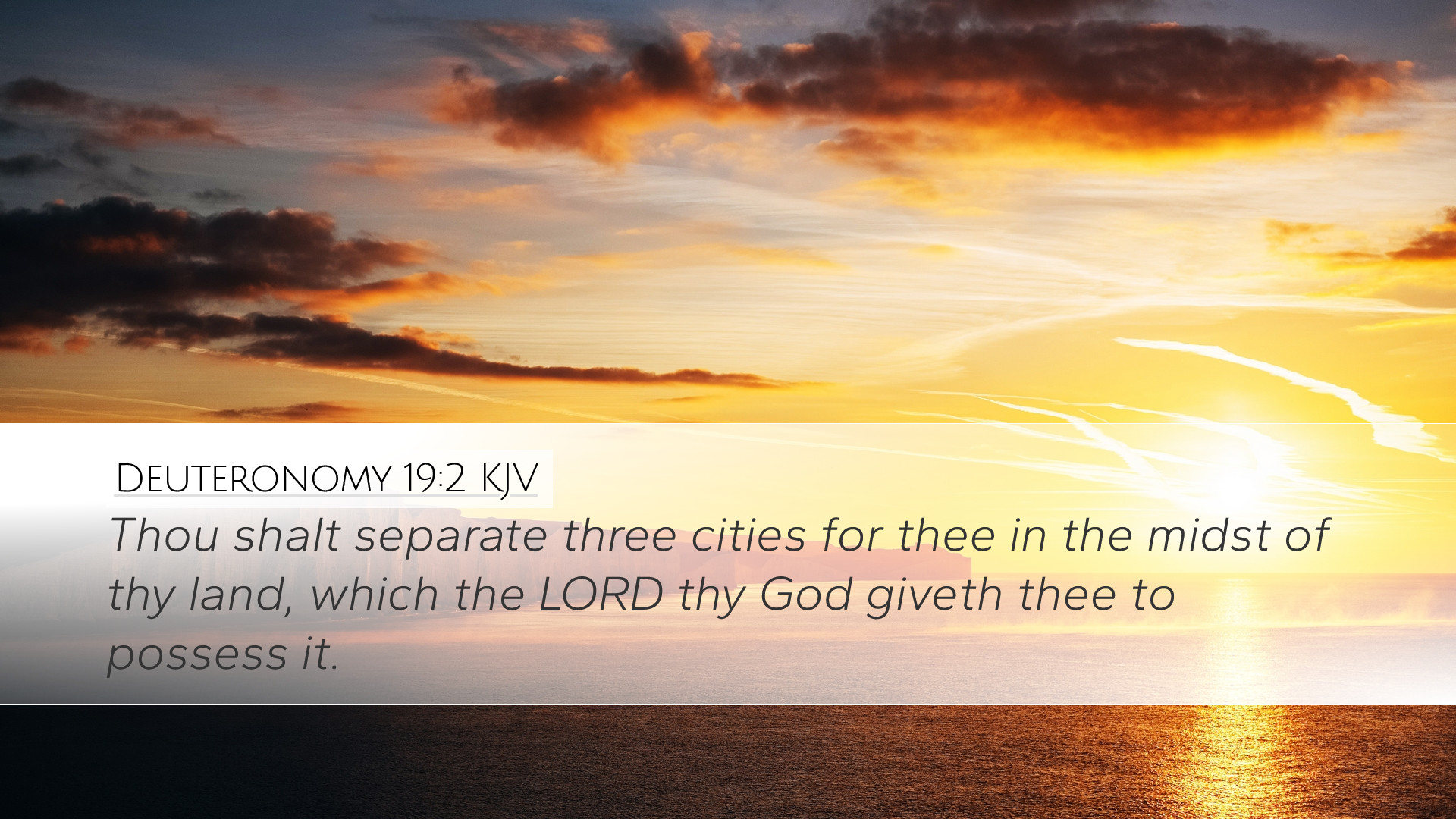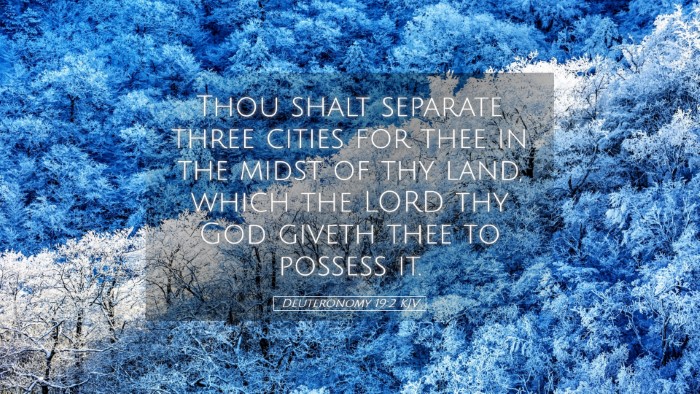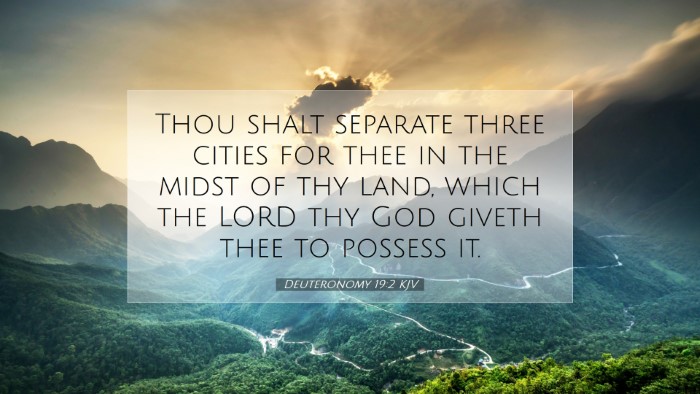Commentary on Deuteronomy 19:2
Verse: "Then thou shalt appoint thee cities to be cities of refuge for thee; that the slayer may flee thither, which killeth any person at unawares." (Deuteronomy 19:2)
Introduction
The commandment in Deuteronomy 19:2 marks a critical aspect of ancient Israelite law regarding justice and mercy, particularly in the context of accidental death. The establishment of cities of refuge not only demonstrates God's provision for the protection of individuals but also reflects the balance of justice within a societal framework.
Insights from Matthew Henry
Matthew Henry underscores the significance of cities of refuge as places of safety for those who unintentionally cause death. He notes that:
- Divine Provision: These cities were appointed by God, highlighting His concern for justice and mercy. They serve as a protection against revenge and the cycle of violence that could arise from unintended actions.
- Accidental vs. Intentional: The differentiation between those who kill intentionally and those who do so accidentally is crucial. Henry emphasizes that God’s laws are designed to ensure fair treatment based on the heart and intent of the individual.
Reflections from Albert Barnes
Albert Barnes elaborates on the concept of the cities of refuge, suggesting that:
- Symbolism of Refuge: The cities can be seen as a foreshadowing of Christ, who is our ultimate refuge. Just as individuals can flee to these cities for safety, so too can believers find refuge in Christ for their souls.
- Moral Responsibility: Barnes notes that while the cities provide refuge, they also serve as a reminder that individuals must act responsibly, as the unintentional killing of another still carries profound moral implications.
Adam Clarke's Interpretation
Adam Clarke offers a detailed analysis of the significance of the cities of refuge:
- Purpose of the Cities: Clarke emphasizes that these cities were a means to prevent lethally violent retribution and to establish a justice system based on God's principles. They illustrate God's heart for mercy amidst tragedy.
- Community Aspect: The cities also illustrate the communal nature of justice, as they required a collective acknowledgment of the laws and norms that govern behavior within a society.
Theological Implications
This verse and the concept of cities of refuge resonate deeply with various theological principles:
- God's Justice and Mercy: The appointment of these cities embodies the tension between justice and mercy. It illustrates that while sin has consequences, God provides a means of grace.
- Redemptive Narrative: This passage can be seen as part of a larger redemptive narrative where God offers safety and salvation to His people, reflecting His character as a protector and provider.
Practical Applications
For pastors, students, and theologians, the implications of Deuteronomy 19:2 can lead to profound explorations of contemporary justice systems and the church's role in matters of mercy:
- Advocacy for Justice: Understanding the principle behind the cities of refuge can inspire advocacy for just treatment of individuals accused of minor offenses and the importance of mercy in justice.
- Creating Safe Spaces: Churches and communities can seek to be places of refuge for those feeling the burden of guilt or unintended harm, encouraging healing and reconciliation.
- The Role of Intent: This verse challenges believers to consider the importance of intent in conflicts and relationships, fostering a spirit of understanding and peace.
Conclusion
Deuteronomy 19:2 encapsulates a profound and multi-faceted aspect of the law in ancient Israel. It emphasizes the divine balancing of justice and mercy. Through the cities of refuge, God provided a framework for understanding unintended consequences and the necessity of compassion. As modern readers—pastors, students, theologians, and scholars—approach this text, they are invited to reflect on the implications it has for contemporary justice, community life, and their own spiritual journeys.


